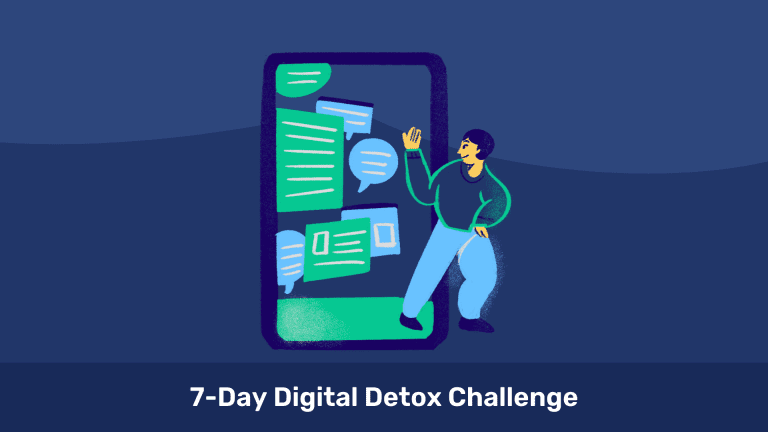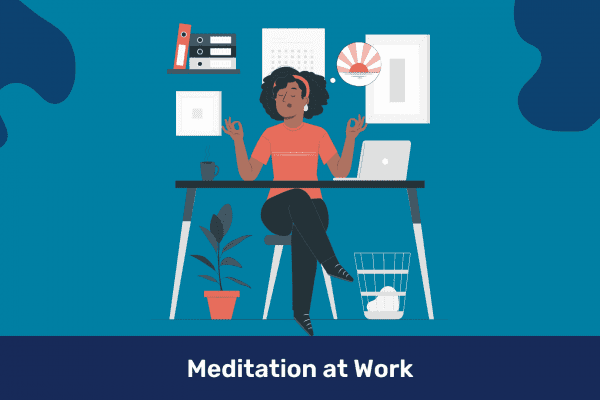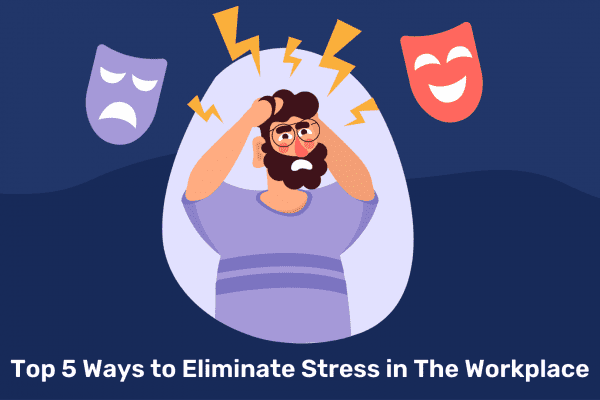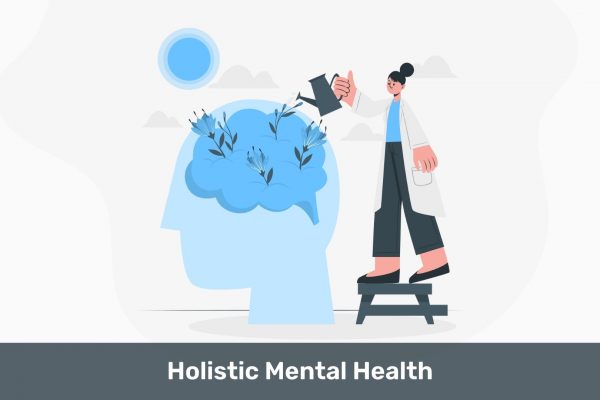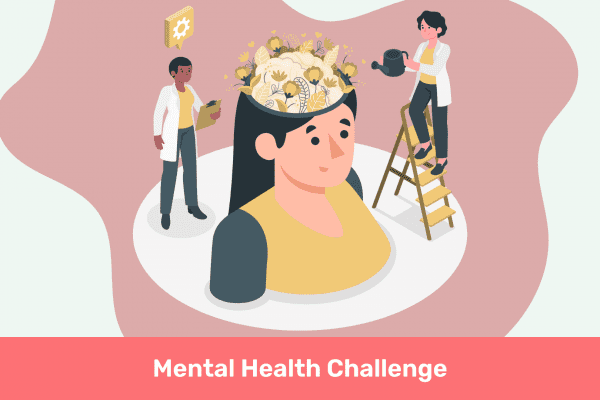Introduction
In our hyperconnected world, where the ubiquity of digital devices has become an integral part of our daily lives, the concept of a “digital detox” has emerged as a compelling solution to combat the overwhelming influence of screens and online platforms.
With the proliferation of smartphones, social media, and digital entertainment, we find ourselves constantly tethered to screens, often at the expense of our physical and mental well-being. It is imperative to pause and reflect on the impact of this digital saturation.
The statistics speak volumes: according to the Pew Research Center, as of 2021, 85% of American adults use the internet, and the average person spends over 4 hours per day on their mobile device, a number that has likely increased since then. This pervasive digital presence raises questions about the quality of our lives and the need for a recalibration.
To address this growing concern, we present the 7-Day Digital Detox Challenge—a transformative journey that invites you to unplug from the digital world temporarily. In the content below, we will explore the ins and outs of this challenge, providing you with the tools, insights, and strategies needed to undertake a profound digital detox. This endeavor promises not only an opportunity to regain control over your digital habits but also to rediscover a sense of balance, clarity, and presence in your everyday life.
As we delve into the specifics of the 7-Day Digital Detox Challenge, prepare to be captivated by the potential for personal growth and enhanced well-being that awaits. Let us embark on this enlightening journey together, as we explore the benefits, methods, and lasting impact of a deliberate break from our screens and digital distractions.
Why is Unplugging from Technology Necessary?
Unplugging from technology is necessary in our increasingly digital age to safeguard our mental and emotional well-being, maintain healthy relationships, and preserve our sense of presence in the physical world. The constant barrage of digital information, notifications, and the pressure to be perpetually connected can lead to stress, anxiety, and a sense of overwhelm.
Taking breaks from screens allows us to reclaim our time, refocus on meaningful face-to-face interactions, and nurture our creativity. It’s a crucial step toward striking a balance between the digital realm and the tangible world, ensuring that we live more intentionally, maintain our mental clarity, and safeguard our overall quality of life.
What is a Digital Detox?
A digital detox refers to a deliberate and temporary break from the use of digital devices and online activities, typically with the goal of reducing screen time, unplugging from digital distractions, and re-establishing a healthier relationship with technology. It involves disconnecting from smartphones, computers, tablets, social media platforms, and other digital tools and services for a specified period, whether it’s a few hours, a day, a weekend, or even longer.
The concept of a digital detox is driven by the recognition of the pervasive influence of digital technology on our lives and the potential negative impacts it can have on our mental, emotional, and physical well-being. It’s a conscious effort to step away from the constant barrage of notifications, information overload, and the addictive nature of social media and online entertainment.
During a digital detox, individuals often engage in various offline activities and practices, such as spending time in nature, reading physical books, having face-to-face conversations, pursuing hobbies, or simply being present in the moment without the distraction of screens. The specific goals and duration of a digital detox can vary widely depending on individual preferences and needs.
The benefits of a digital detox can include improved mental clarity, reduced stress and anxiety, better sleep patterns, enhanced creativity, increased productivity, and a greater sense of connection with the physical world and with others.
It’s important to note that a digital detox is not necessarily about completely eliminating digital technology from one’s life forever; rather, it’s about establishing a healthier and more mindful balance between digital and offline activities. Many people find that periodic digital detoxes can help them gain perspective on their digital habits, reset their priorities, and ultimately use technology in a more intentional and balanced way.
Why Employees Struggle with Digital Detox?
Employees often struggle with digital detox for several reasons, rooted in the demands of modern work environments and the pervasive nature of digital technology. Here are some key factors contributing to this struggle:
-
Work Expectations:
Many jobs require constant connectivity and quick responses to emails, messages, and notifications. Employees fear that disconnecting may lead to missed opportunities, project delays, or a perception of decreased productivity.
-
FOMO (Fear of Missing Out):
The fear of missing out on important information, meetings, or developments can be a significant source of anxiety. In a digital age where news and updates are instantaneous, employees worry about being out of the loop.
-
Peer and Managerial Pressure:
Workplace culture often encourages constant communication. Colleagues and managers may expect quick responses, which can make employees hesitant to unplug for fear of disappointing others or appearing uncommitted.
-
Remote Work:
The rise of remote work has blurred the boundaries between personal and professional life. Employees may feel compelled to remain online to demonstrate their availability, making it challenging to establish a clear digital boundary.
-
Digital Addiction:
Over time, individuals can develop addictive behaviors related to digital devices and social media. Breaking these habits is difficult and can lead to withdrawal symptoms, making it hard for employees to embark on a detox.
-
Performance Metrics:
In some industries, key performance metrics may rely heavily on digital activities. For instance, digital marketers or social media managers may find it challenging to detach from their work, as it directly impacts their performance evaluations.
-
Lack of Support:
In some organizations, there might be a lack of policies or support for digital detox. When employees don’t receive encouragement or guidance on managing their digital usage, they may be less likely to attempt a detox.
-
Technological Dependency:
Employees often rely on digital tools for their work, from project management platforms to communication tools. Detoxing can be difficult when these tools are seen as essential for daily tasks.
-
Social and Cultural Expectations:
Social gatherings and cultural norms often revolve around digital communication. Employees might feel compelled to stay connected online to maintain their social lives and relationships.
-
Emotional Attachment:
People can form emotional attachments to their devices, seeing them as sources of comfort, entertainment, or validation. Detaching from these devices can be emotionally challenging.
Addressing these challenges often requires a combination of personal commitment, organizational policies that promote work-life balance, and a supportive work culture that respects employees’ boundaries. As we continue to navigate the digital age, finding ways to strike a healthy balance between work and personal life while managing digital detox is becoming increasingly important for both individual well-being and overall productivity.
Benefits of a Digital Detox
A digital detox offers several specific and tangible benefits that can significantly enhance one’s well-being and quality of life. Here are some of the benefits of digital detox:
-
Improved Sleep Quality:
Digital devices emit blue light, which can disrupt the production of melatonin, a hormone that regulates sleep. According to the National Sleep Foundation, 90% of Americans use electronic devices within an hour of bedtime, potentially affecting their sleep quality. A digital detox can lead to better sleep patterns, with improved focus and energy during the day.
-
Reduced Stress and Anxiety:
The constant stream of notifications and information overload can contribute to elevated stress levels. A survey by the American Psychological Association found that 86% of Americans report constantly checking their emails and social media, leading to stress. A digital detox can help reduce stress and anxiety.
-
Improved Mental Health:
Excessive use of social media has been linked to negative mental health outcomes. A study published in JAMA Pediatrics found that increased time spent on social media is associated with higher levels of internalizing behaviors among adolescents. A digital detox can offer relief from the pressures of social media.
-
Enhanced Relationships:
Digital devices can interfere with face-to-face interactions and quality time spent with loved ones. According to a survey by Common Sense Media, 50% of teens felt their parents were addicted to their mobile devices. Disconnecting from screens can help strengthen personal relationships.
-
Heightened Creativity:
Excessive screen time can limit opportunities for creative thinking and inspiration. A study published in the journal PLOS ONE found that exposure to nature and a break from technology can boost creative problem-solving abilities.
-
Physical Health Benefits:
Prolonged screen time can contribute to a sedentary lifestyle, which is associated with various health risks. According to the World Health Organization, insufficient physical activity is one of the leading risk factors for global mortality. A digital detox can encourage more active and health-conscious habits.
-
Enhanced Attention Span:
Constant switching between digital tasks can lead to a reduced attention span. A study published in the journal Computers in Human Behavior found that heavy media multitaskers perform worse on cognitive control tasks. A digital detox can help improve attention and concentration.
-
Strengthened Sense of Presence:
Disconnecting from digital distractions allows individuals to be fully present in the moment. According to a survey by the Royal Society for Public Health, 70% of young people in the UK believe that using social media negatively impacts their mental health. A digital detox can help individuals reconnect with their surroundings and themselves.
7-Day Digital Detox Challenge
The 7-Day Digital Detox Challenge is a structured program designed to help individuals take a deliberate break from digital devices and online activities. This detox serves as a valuable opportunity to regain control over your digital habits, reduce screen time, and restore balance in your life. Below, we outline the steps and guidelines for successfully completing a 7-day digital detox:
1st Day: Preparation and Mindset Adjustment

- Set Clear Goals: Start by defining your objectives for the digital detox. Setting clear goals can be a powerful motivator.
- Notify Contacts: Inform friends, family, and colleagues about your detox and provide alternative means of communication in case of emergencies.
- App Cleanup: Delete or temporarily disable non-essential apps, particularly those that tend to be time-wasters or sources of distraction.
- Create a Digital Detox Plan: Develop a daily schedule for the week, allocating time for offline activities, exercise, and relaxation.
2nd Day: Device Detox

- Digital Declutter: Turn off non-essential notifications on your devices to minimize distractions.
- Set Boundaries: Establish specific times when you will use digital devices during the detox. Ideally, limit usage to essential work-related tasks.
- Designate Device-Free Zones: Create physical spaces in your home where digital devices are not allowed.
3rd Day: Digital Content Evaluation
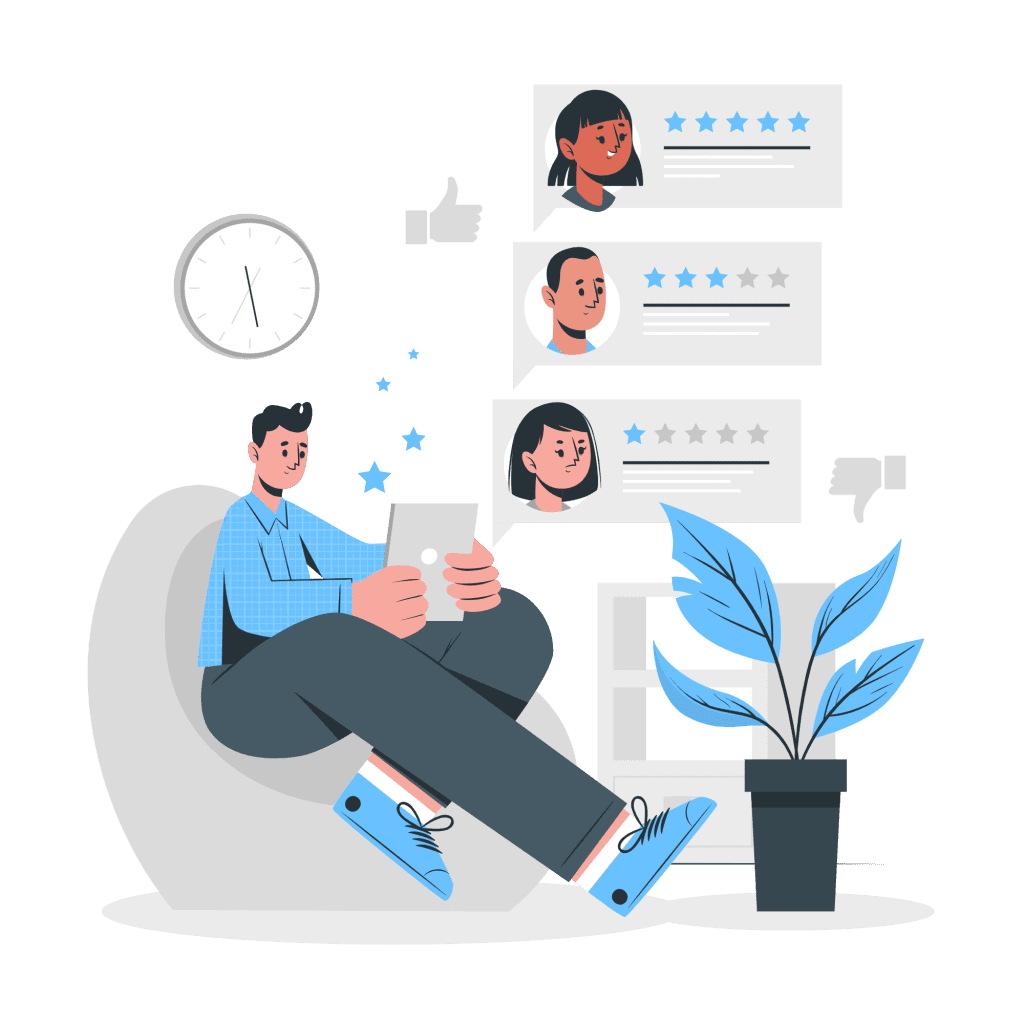
- Social Media Audit: Review your social media accounts and consider unfollowing or muting accounts that promote negativity or consume excessive time.
- Email Clean-Up: Organize your email inbox by unsubscribing from newsletters or promotional emails that clutter your inbox.
- Digital Consumption Awareness: Pay attention to how much time you spend consuming digital content and identify areas where you can cut back.
4th Day: Offline Activities

- Rediscover Hobbies: Reconnect with hobbies or interests you’ve neglected due to excessive screen time.
- Read a Book: Dedicate time to reading physical books or magazines, allowing your mind to engage deeply in a narrative.
- Physical Activity: Incorporate exercise into your daily routine to promote physical and mental well-being.
Tip 💡: Wear a fitness tracker or smartwatch to monitor your physical activity. These devices provide real-time data, keeping you informed without needing to check your phone constantly.
5th Day: Mindfulness and Presence

- Practice Mindfulness: Spend time in meditation or mindfulness exercises to develop a greater sense of presence and self-awareness.
- Outdoor Time: Enjoy nature by taking a walk, hiking, or simply sitting outdoors without digital distractions.
6th Day: Connect with Others

- Face-to-Face Interaction: Initiate in-person conversations or activities with friends and family.
- Write or Call: Send handwritten letters or make phone calls to people you care about to strengthen personal connections.
7th Day: Reflection and Planning
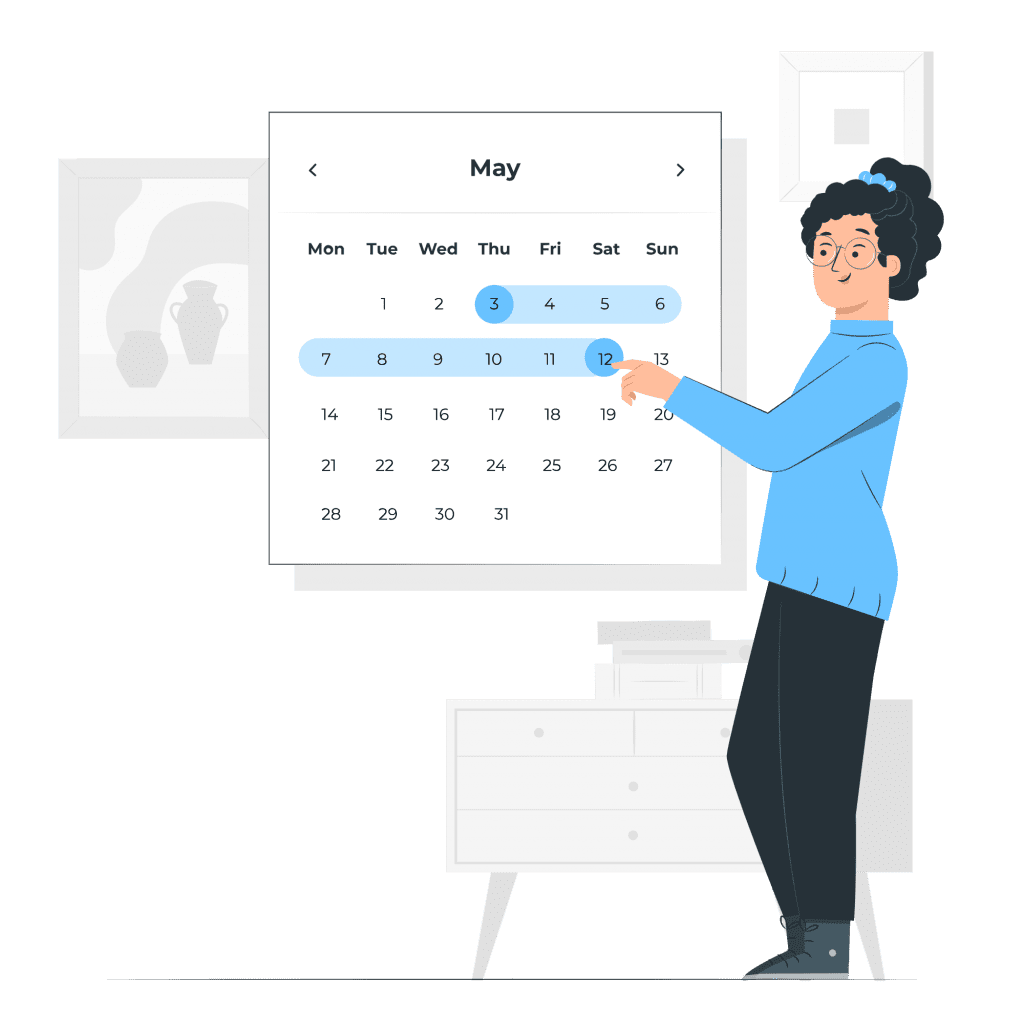
- Reflect on Your Progress: Assess the impact of the digital detox on your well-being, productivity, and overall lifestyle.
- Set Future Goals: Determine how you will incorporate the lessons learned from the detox into your ongoing digital habits.
- Plan for Balance: Develop a long-term strategy for maintaining a healthy balance between digital and offline activities.
Remember that the 7-Day Digital Detox Challenge is about creating a healthier relationship with technology. Periodic digital detoxes can be a powerful tool for maintaining a balanced and fulfilling lifestyle.
Disconnect to Reconnect
“Disconnect to Reconnect” is a powerful mantra that resonates with both employees and individuals in their personal lives. In a professional context, employees often find themselves buried in a digital avalanche of emails, meetings, and constant connectivity.
The “always-on” culture can lead to burnout, decreased productivity, and strained work-life balance. By consciously disconnecting from the digital world, employees can find the space and time to reconnect with their inner selves. This reconnection can lead to increased creativity, improved decision-making, and enhanced job satisfaction.
For individuals in their personal lives, the concept of disconnecting to reconnect is equally significant. The allure of smartphones, social media, and digital entertainment can sometimes hinder our ability to engage fully with loved ones, nature, or our own thoughts.
Intentional breaks from screens deepen our appreciation for the world and our own emotions. By disconnecting, we cultivate profound connections and strengthen relationships.
Disconnect to reconnect and discover life’s most profound moments. Meaningful experiences often await when we step away from the virtual and embrace the real. It’s a powerful reminder that, in our digital lives, the pause can lead to profound moments of connection and reflection, both professionally and personally.
Conclusion
Reclaim control over your digital life with the 7-Day Digital Detox Challenge. Experience renewed well-being and balance through this structured detox journey. For employees, it’s a relief from digital work pressures; for individuals, a chance to forge deeper personal connections. Beyond the week-long detox lies a roadmap for a healthier tech relationship in the long term. The benefits endure, offering a guide to a sustained, balanced tech connection.
At Woliba, we understand the significance of disconnecting to reconnect. We’re here to assist individuals in their digital detox journey, reclaiming precious time. Our mission is to enhance quality of life by supporting digital detox efforts. Join us in taking deliberate steps towards a more balanced, mindful, and fulfilling digital lifestyle. Contact us today to embark on your own journey of digital transformation.
Contact Woliba to explore how we can assist you in creating your digital detox challenge.

